I have almost finished reading through my stack of books for the month. Some I read twice over because I enjoyed them so much, some I never finished because they were not what I thought they were, and some I am still trying valiantly to finish... Here's a tiny peek at what is in my "book crate" this month...
Slow Food Nation
By Carlo Petrini
Rating: 10
Readability: 8
This was a fantastic book, but it is in every way, a "slow" book. I had to read and re-read everything just to fully comprehend what the author was saying. Maybe it had something to do with the fact that it was translated from Italian to English? But once you get used to mentally slowing yourself down (by nature, I am a very fast reader), the book is very enjoyable, informative, and eye opening.
Impact: 10
I learned a ton from this book; although some of his terms took some getting used to, such as a person being a "gastronome"! ;) I suppose the "American" version of his term would be something like "foodie", "locavore", "Greenie"... Something along those lines.
Recommend it: Very highly! Just take it slow!
Read it again: Yes! Someday I would like to buy this book!
What to expect: Right off the top, you might expect that this book would be about eating "organic, local foods" and all that stuff that seems sorta' elitist. I was pleasantly surprised to find the opposite. Petrini writes with a passion about how our food should be "good", "clean", and "fair". The majority of the book explains in very fine detail just what he means by that. Basically, we should have a decentralized food system that is "good", meaning it supports families in a way that they can make a true living, not just surviving. It should be "clean", meaning our food system should be sustainable, so that families do not have to rely on chemicals, and that the farming practices do not pollute or endanger anyone or anything. And it should be "fair". Many third world countries are cheated out of what they should earn for their crops (many earn $1 per day to support their families). Petrini wants to see that all family farms get a fair price for their goods, not the lowest price possible.
My thoughts on it: Overall, I liked it. I like Carlo's style (even though it took some getting used to), and I like his ideals and goals. He wants to see the world's endangered livestock, cultures, foods, and lore be revived and kept going. I think he has a good thing going. ;)
The Face On Your Plate: The Truth about Food
By Jeffrey Moussaieff Masson
Rating: 1
Readability: 3
Impact: 0
Recommend it: No
Read it again: No
What to expect: Masson does his best to turn all his readers in to vegetarians (he would prefer vegans though), by an attempt to horrify you, take you on a guilt trip, and prove the point that animals are the same as people in every respect.
My thoughts on it: I read through the whole thing, because I had heard about so many people turning vegetarian after reading it. I was curious to see how one author could have such an impact. I was not impressed in the least. Masson's theory had a lot of holes; and big ones at that. He starts the book out by asking why we would value an infant/ mentally retarded/autistic child more than a full grown chimpanzee who has "more intelligence than the above humans". That made me mad. I slammed the book shut and threw it back into my book crate. As a Christian, I believe what the Bible says, and that is that we humans were created in God's image, and we were created to be stewards of the earth and to have dominion over all the animals. Masson's explosive question goes completely against what God has told us.
After a few days to cool the smoke, I picked up the book and continued. Next explosive remark: Why do humans feel that it is okay to eat animals and/or keep them for dairy, eggs or work, but we rebel at the thought of human slavery? Masson claims that we are hypocrites in the worst sense of the word if we can do this without any feeling of remorse for the animals.
Another urge to slam the book closed and burn it. But I didn't. I take it back to the bible. We were given dominion over the animals. It says numerous times in various places how the animals were created to be "beasts of burden".
Continuing on in the book, Masson takes you through the dairy business, the egg business, and the meat CAFO's, trying to take you on a guilt trip. Overall, his reasons for not eating meat is that an animal has to suffer in order to feed you. My opinion is that eating meat is biblical, and while yes, the CAFO animals do suffer horrendously while growing to slaughter weight, we can easily choose to eat meats that have been grown by small farmers who care about their livestock and see that they have a content, although short, life.
Masson does write about the small farms where the animals are cared for properly, but still condemns them. His reasoning? The animal still suffers when his time is up. Therefore, humans should not eat meat.
My response was an original, "bah-humbug"! I have personally slaughtered animals before, and I know that if the animal is dispatched quickly and properly, then it feels no pain; it's just over.
Biblically, slaughtering an animal was a daily thing for many people. Jesus Christ is depicted as a "lamb going to slaughter", or "the lamb that was slain". Life, suffering and death are irrevocably intertwined. You cannot get away from it no matter what.
Back in February, I did do a one month meat fast. I consumed no meat at all, and liked it pretty well. But I did it for health reasons, not because I felt that eating meat was wrong.
So I finished the book. No, I did not burn it. It is sitting quietly in my book crate, waiting to go back to the library. Masson brought up many points, but I did not feel that any were biblically sound. And so, I will continue to eat meat, eggs and dairy. Masson can keep his veggie burgers, I think I'll have scrambled eggs for lunch today...
Real food: What to eat and why
By Nina Planck
Rating: 9
Readability: 10
Impact: 10
Recommend it: Yes!
Read it again: Yes!
What to expect: Nina is very down to earth as she writes, and very simply points out how the basic foods truly are the best foods for our bodies. All those yummy foods such as raw milk, homegrown eggs, real cheese, oils, meats, lard, fruits, vegetables, etc. are what God created for us; we should enjoy them and know that they are healthy!
My thoughts on it: I loved her style, and loved her points about it. It takes her awhile to actually get "into" the book, as she tells about her childhood and young adult years, aaaaand it takes awhile to read through. The only thing I didn't like was that she believes in evolution, and every now and again brings up the phrase, "millions of years ago, we humans...." But her information is very sound, both scientifically and biblically. I thoroughly enjoyed it, and it made me hungry every time I read it! ;)
I have over 25 books in my book crate, but somehow I don't think y'all want a review on all of them [wink], so I'll leave these three as a highlight of what I've been reading. Have you read any of these books? What were your thoughts on them?

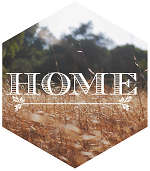
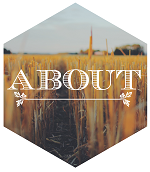

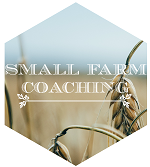
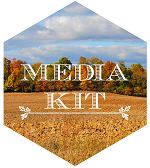

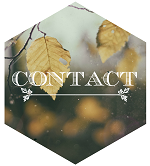



No comments:
Post a Comment